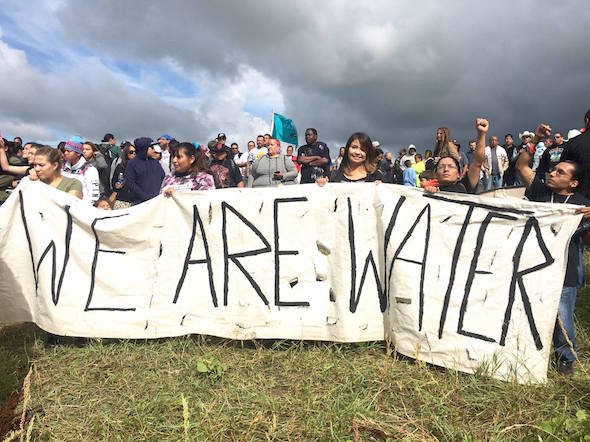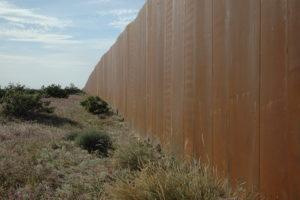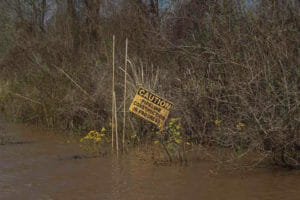Standing Rock Sioux Chairman: ‘We’re Standing Up and We’re Saying, “No More” ‘
More than 1,000 Native American activists have traveled to Sacred Stone Spirit Camp in North Dakota to stop the construction of the Dakota Access pipeline. Now the fight continues in federal court in Washington, D.C.
Dakota Access pipeline protesters at Cannonball River in North Dakota. (No Dakota Access in Treaty Territory – Camp of the Sacred Stones / Facebook)
The Dakota Access pipeline protests are getting stronger. Despite efforts to curb them, according to “Democracy Now!”, over 1,000 Native American activists from tribes across the United States have journeyed to the Sacred Stone Spirit Camp in North Dakota to voice their opposition to the $3.8 billion oil pipeline project, which they say could contaminate the Missouri River. The Standing Rock Sioux tribe launched the camp on April 1, and protests have stopped construction of the pipeline for now.
READ: Dakota Pipeline Would Make Water the New Oil, Devastating All but the Rich
In July, the environmental group Earthjustice filed a lawsuit for the Standing Rock Sioux tribe against the U.S. Army Corps of Engineers, NPR reports. The Corps approved construction of the pipeline, and on Wednesday in Washington, D.C., the Standing Rock Sioux tribe goes to federal court to present its appeal and seek an injunction.
READ: The People vs. the Bakken Pipeline in Iowa and the Dakotas
Dave Archambault, chairman of the Standing Rock Sioux tribe, appeared on “Democracy Now!” with Amy Goodman on Tuesday to discuss the lawsuit.
What we’re filing a lawsuit on is the destruction of our ancestral burial sites and never being given the opportunity to protect them, as well as the nationwide permitting process. Rather than permitting the project as a whole and doing a full EIS [Environmental Impact Statement], the Corps of Engineers asked that they permit chunks and pieces of it. And they require an EA [Environmental Assessment]. Now, the EA is less intensive as the EIS, so they’re able to kind of do unlawful things, that—such as destroy our sites that are sacred to us.
We don’t agree with the fact—they’re going to say they had consulted with us on this matter. To us, consulting doesn’t mean corresponding through letter or mail, or it doesn’t mean presenting us a final draft of what you’re going to do. Consulting, to us, would mean that we need to have deliberation and share our concerns and hope that they hear us and see a reflection of our concerns in the final plan. None of that has taken place. We asked for consultation prior to any final drafts and to survey the routes to make sure that none of the sites that we cherish would be destroyed. It’s not until after they finalized what they want to do, this Dallas-based company [Energy Transfer Partners] who is doing the EA for the Corps of Engineers tells us how or where they’re going to go. Now they come and invite us to do surveys, and we don’t think that’s right. We think it’s unlawful, and we think it’s unjust.
Watch the whole interview below.
—Posted by Eric Ortiz
Your support matters…Independent journalism is under threat and overshadowed by heavily funded mainstream media.
You can help level the playing field. Become a member.
Your tax-deductible contribution keeps us digging beneath the headlines to give you thought-provoking, investigative reporting and analysis that unearths what's really happening- without compromise.
Give today to support our courageous, independent journalists.


You need to be a supporter to comment.
There are currently no responses to this article.
Be the first to respond.